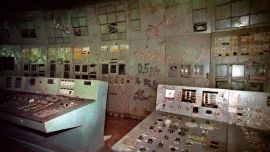As a Muslim by birth, the image of a cubic structure covered with a black cloth has been with me since my childhood. I did not know its name or its significance, but I often saw it on the covers of books, on prayer mats, on the walls of mosques and, above all, the sequence on television in which thousands and thousands of people, all dressed in the same white clothes, surrounded it. As time went by, I advanced in my religious knowledge and discovered that this place is called "Kaaba" and it is located in Mecca (Saudi Arabia).
In Islam the pilgrimage to the Kaaba, which is called "Hajj", is a unique event in its importance and has international relevance. The pilgrimage takes place every year during the last month of the Islamic calendar, which is defined by the lunar calculation. For this reason, the dates according to the Gregorian calendar have an annual rotation of approximately 10 days and in 2022, the pilgrimage will take place from July 7 to 13. During this period, in pre-pandemic times, more than two million people used to visit the Kaaba. This year, the Saudi government allowed one million Muslims from all over the world for the pilgrimage, which is a huge number compared to the previous year when only 60,000 people, exclusively residents of the country, were allowed to carry out the Hajj rituals.
Hajj is one of the five pillars of Islam and is an obligatory commandment that every Muslim, male or female, has to fulfil at least once in his or her life. However, it is a conditional commandment and applies only to those who have sufficient financial resources, the necessary health to undertake the journey and those who are in a safe situation to travel. Therefore, in times of pandemic, it was not obligatory for all believers. Even there are certain Muslim branches that are still unable to perform the pilgrimage for their own safety and are persecuted in Saudi Arabia, such as the Muslims of the Ahmadiyya Community.
However, unanimously for all Muslims, the Kaaba is the holiest place and was the first house dedicated to the worship of the One God. Mecca plays a vital role in the daily life of a Muslim and during every prayer one turns to it, by which it is converted into a constant orientation and a place of unity for the whole Islamic world. Nevertheless, the rituals during the pilgrimage are dedicated to the sacrifices of the Prophet Abraham, his wife Hagar, and their son Ishmael, in order to preserve the Kaaba as a symbol of God's unity. Those worshippers who are unable to travel to Mecca symbolically join in the celebration of the pilgrimage, called "Eidul Adha" (the celebration of the sacrifice), and remember spiritually with their local Community the sacrifices of the prophet Abraham and his family.
In conclusion, for Muslims the pilgrimage is a symbolic expression of their dedication to the Supreme Being. In turn, Mecca fulfils the function of being a place of union for all mankind, just as the Prophet Abraham is considered the trunk and the father of the three monotheistic religions: Judaism, Christianity and Islam. Therefore, this year we will celebrate together with Jewish and Christian representatives the pilgrimage to Mecca through an interfaith prayer for peace and by performing an act of charity for the needy in our society.
* Imam Marwan Gill is Islamic theologian and President of the Ahmadiyya Muslim Community in Argentina.
related news
by Imam Marwan Gill*






















Comments